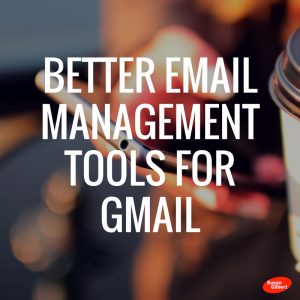Keyword selection is as integral a part of pay per click advertising as selecting copy and headline variations. However, it’s often viewed as somewhat of an afterthought as some spend hours crafting amazing copy, landing pages, and funnel optimization strategies while not giving nearly as much attention to the specific area in which they’re burning money – keywords.
Understanding the match types offered in the Google Adwords, Bing and other PPC ad platforms is a huge step in the right direction.
Let’s take a deeper look at how each work, and when to use them. The following rules are for Google, and may vary slightly if using Bing or others.
Broad Match
Broad match searches are the simplest form of selecting keywords. After entering your specific keyword, you’re telling the platform that this is the word you want to use, but if the searcher comes close, you’ll take it.
Searches include keyword variations, misspellings, synonyms and searches related to your keyword that don’t necessarily include it. In short, it’s an effective way to burn money quickly without showing much ROI. That said, there is a time and place to use it, but we’ll get to that later.
Modified Broad Match
Modified broad match is almost the same as the above, broad match. The key difference here is the +keyword usage before the word you want to match. This allows you to modify the usage of the broad match rules to only allow modified use of the keyword or very close (as opposed to looser synonym rules for regular broadmatch) synonyms
So, in this case, using modified broad match for the keyword +hats would display on search results for hats, men’s hats, women’s hats, baseball caps, fedoras, and others that are closely related to the keyword that includes them.
Phrase Match
Phrase match differs from broad match in that your keyphrase must be used in order, and without substitutions to the words within it.
By using “keyword” you’re essentially eliminating substitutions and making sure that anyone typing in your keyphrase is highly relevant to the term you are bidding form. For example, “baseball caps” could appear when searchers use red baseball caps, baseball caps for sun protection, Giants baseball caps, and others.
Exact Match
Exact match is the most precise of the match types. To use it, you simply enclose your keyword or keyphrase in square brackets, like this: [keyword].
This match type allows you to tell Google you only want your ad to display when searchers enter the keyword or keyphrase exactly as it is written within the square brackets. So, [tennis rackets] would display ads for the tennis rackets search term, but not for men’s tennis rackets, cheap tennis rackets, or tennis rackets for sale.
Negative Match
Negative match uses any of the above rules with a “–” sign in front of it to tell Google you don’t want to display ads for that keyword or phrase. For example, -keyword, -“keyword”, and -[keyword] would all block a specific keyword from triggering your ad.
When to Use Each Match Type
Broad: When you have a lot of budget to spend, and you want to cast a wide net in order to find keywords that are converting by experimenting with variations you may not have thought to target.
Modified Broad: Essentially the same as above, but in this case you want closer synonym matches and no instances of misspellings.
Phrase: When you’re selling a specific product that won’t be affected by additional words before or after the targeted phrase. For example, “tennis shoes” as a primary target wouldn’t be affected by those typing in things like, comfortable tennis shoes or red tennis shoes.
Exact: When you know exactly what you’re looking for, and you aren’t interested in alternative use of your keyphrase. Often the best converting, but feature less traffic, and higher click prices.
Negative: When you want to exclude irrelevant searches.
Knowing how to utilize match types leads to lower spend, better results, and a better understanding of the platform serving your ads. It’s always wise to dig in a bit to get a working knowledge of the features that could make or break your campaign, and this is certainly no different.
“Pay per click can solve an immediate problem, similar to taking a pain killer when you have an injury. The problem is those pain killers wear off and the masked pain comes back. SEO is like taking an antibiotic, which goes to the root of the problem and heals it. SEO is the long term, and can work very well in combination with the short term pain killer PPC.”
(258)
Report Post





